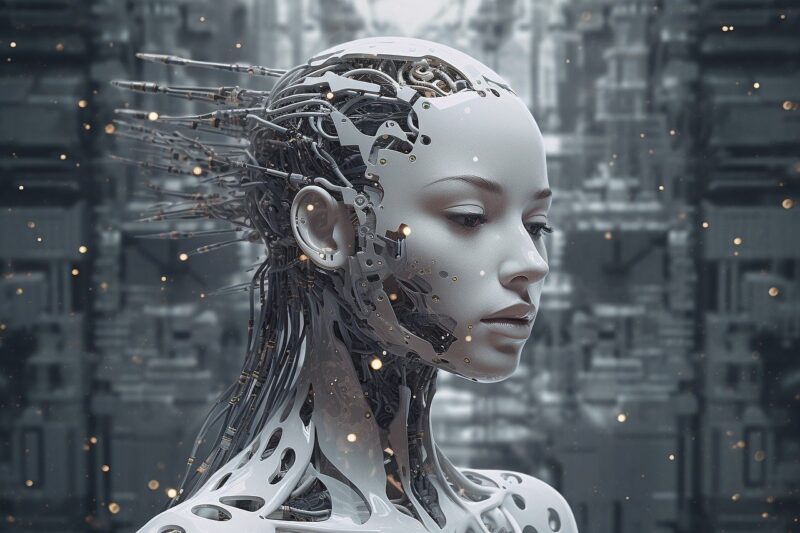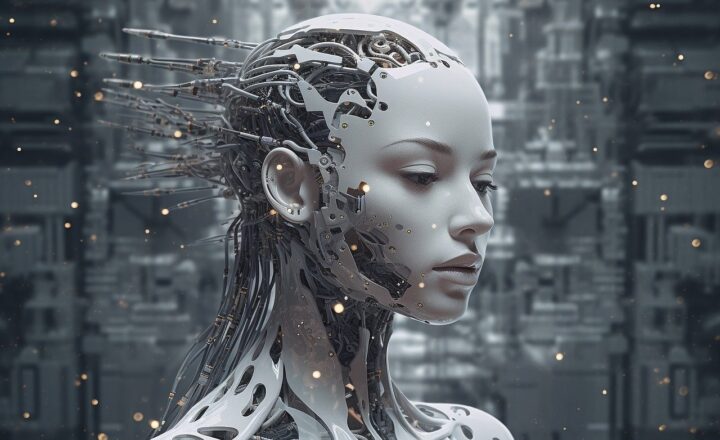The Rise of AI: How Artificial Intelligence Is Reshaping Our Daily Lives
November 17, 2024

Artificial Intelligence (AI) has transitioned from a niche subject into a significant part of our daily lives, influencing countless industries and personal experiences. With the rise of AI, the way we interact with technology—and each other—is rapidly changing. As we delve deeper into this exciting field, understanding its implications becomes essential for navigating our future.
1. Understanding Artificial Intelligence
Artificial Intelligence refers to the ability of machines and software to emulate human-like cognitive functions such as learning, reasoning, problem-solving, and understanding language. At its core, AI is about creating systems that can operate and perform tasks autonomously.
There are two main types of AI:
- Narrow AI: This is AI that is designed to perform a specific task, like voice assistants or recommendation systems. It excels in its designated function but lacks general intelligence or consciousness.
- General AI: This hypothetical form of AI would possess the ability to understand, learn, and apply intelligence across a wide range of tasks, similar to human intelligence. It is not yet a reality but remains a topic of ongoing research and debate.
Understanding these fundamentals offers insights into how AI is integrated into our daily routines.
2. AI in Everyday Applications
In recent years, AI has seeped into various aspects of everyday life, often in ways that go unnoticed. Some common applications include:
- Smart Assistants: Devices like Amazon Echo and Google Home utilize AI to understand voice commands, manage our schedules, play music, and control smart home devices. The convenience these assistants provide is reshaping our interactions with technology.
- Personalized Recommendations: Streaming platforms like Netflix and music services like Spotify use AI algorithms to analyze user behavior, providing tailored content recommendations. This personalization enhances user satisfaction and engagement.
- E-commerce Optimization: AI-driven chatbots are transforming the retail industry by providing real-time assistance to customers. They can manage inquiries, suggest products, and track order statuses seamlessly, thereby improving the shopping experience.
- Healthcare Innovations: AI applications in healthcare include diagnostic tools that analyze medical images for early disease detection, as well as machine learning algorithms that assist in personalizing treatment plans for patients, paving the way for better health outcomes.
AI’s presence is subtle yet impactful, offering significant improvements in efficiency and personalization in everyday tasks.
3. The Impact of AI on the Workforce
As AI continues to gain traction, its influence on the workforce is increasingly evident. While AI has the potential to enhance productivity, it also raises concerns about job displacement and the future of work.
**Positive Impacts:**
- Automation of Mundane Tasks: AI excels in performing repetitive, time-consuming tasks, freeing human workers to focus on more strategic and creative aspects of their roles.
- Enhanced Decision-Making: With AI’s ability to analyze vast amounts of data quickly, businesses can make informed decisions that optimize performance and profitability.
- Job Creation in New Fields: While some traditional roles may decline, AI creates job opportunities in AI development, data science, and machine learning, leading to new career paths for tech-savvy individuals.
**Challenges:**
- Job Displacement: The concern that AI will replace human jobs has sparked debates about the future job market, especially for roles in manufacturing and repetitive tasks.
- Skill Gaps: An increasing demand for skills in AI-related fields means that many workers may need retraining to remain competitive in the evolving job landscape.
Navigating these changes requires both adaptation and strategic investment in education and training programs to prepare the workforce for an AI-driven future.
4. Ethical Considerations in AI Development
The rapid adoption of AI brings forth numerous ethical questions that need addressing. Among the most pressing concerns are:
- Bias in AI Systems: Algorithms trained on biased data can perpetuate existing stereotypes and injustices, leading to unfair outcomes in areas like hiring and law enforcement. Ensuring fairness in AI is paramount for its ethical development.
- Privacy Concerns: The extensive data collection needed for AI systems raises issues of user privacy and consent. Striking a balance between innovation and protecting personal data is crucial.
- Job Displacement and Accountability: As AI systems take over more responsibilities, determining accountability in the event of mistakes or failures poses significant ethical dilemmas.
Addressing these ethical issues requires ongoing dialogue among technologists, policymakers, and the public to ensure that AI serves society positively and equitably.
5. The Future of AI in Daily Life
Looking ahead, the future of AI promises exciting developments that will further shape our lives. Potential advancements include:
- Enhanced Personalization: As AI technology evolves, we can expect even greater personalization in services like marketing, education, and entertainment tailored to individual preferences and behaviors.
- Integration with Smart Environments: AI will likely play a crucial role in creating smart homes and cities, where interconnected devices optimize energy efficiency, traffic management, and public safety, ultimately enhancing quality of life.
- Stronger Collaborations Between Humans and AI: The future may see more collaborative AI systems that work alongside humans, enhancing our capabilities and supporting creative problem-solving rather than competing with our skills.
AI’s trajectory indicates a transformative journey that may redefine society, creating novel interactions between technology and human life.
Conclusion
The rise of AI is not just a technological revolution; it represents a profound shift in how we engage with the world around us. By recognizing the benefits, challenges, and ethical considerations, we can harness the power of AI to create a future that prioritizes innovation, equality, and human advancement.







